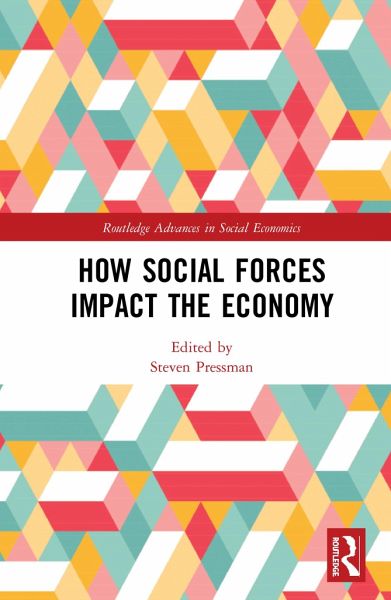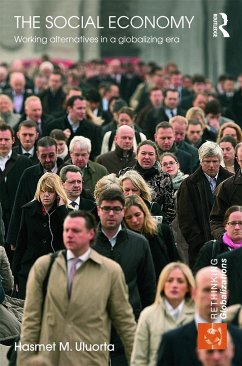
How Social Forces Impact the Economy

PAYBACK Punkte
84 °P sammeln!
Social forces are important determinants of how people behave, how economies work at the macroeconomic level, and the effectiveness of economic policies. However, this dimension is generally overlooked in mainstream economics. How Social Forces Impact the Economy demonstrates that a broader conception of social economics provides for a better understanding of how economies work as a whole. This book argues that adopting a truly social approach to economics opens the door to studying how people form preferences, and how they learn by taking cues from others about how to behave and what to consu...
Social forces are important determinants of how people behave, how economies work at the macroeconomic level, and the effectiveness of economic policies. However, this dimension is generally overlooked in mainstream economics. How Social Forces Impact the Economy demonstrates that a broader conception of social economics provides for a better understanding of how economies work as a whole. This book argues that adopting a truly social approach to economics opens the door to studying how people form preferences, and how they learn by taking cues from others about how to behave and what to consume. Each chapter contributor works to highlight the breadth of new insights and possibilities that emerge from a fuller understanding of social economics. Part I focuses on microeconomics, bringing individual behaviors and individual entrepreneurs into a more social context. Part II focuses on macroeconomic topics, such as how money and quasi-monies (like Bitcoins) are social, how money developed as a social institution, and how social forces matter for economic development. Finally, Part III looks at the consequences of considering social factors when it comes to policy: environmental policy, industrial policy, and policies promoting greater equality. This book is invaluable reading to anyone interested in the relationship between economics and sociology, how social forces affect policy effectiveness, human behavior, and the overall economy.














